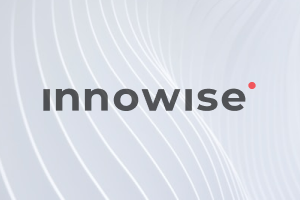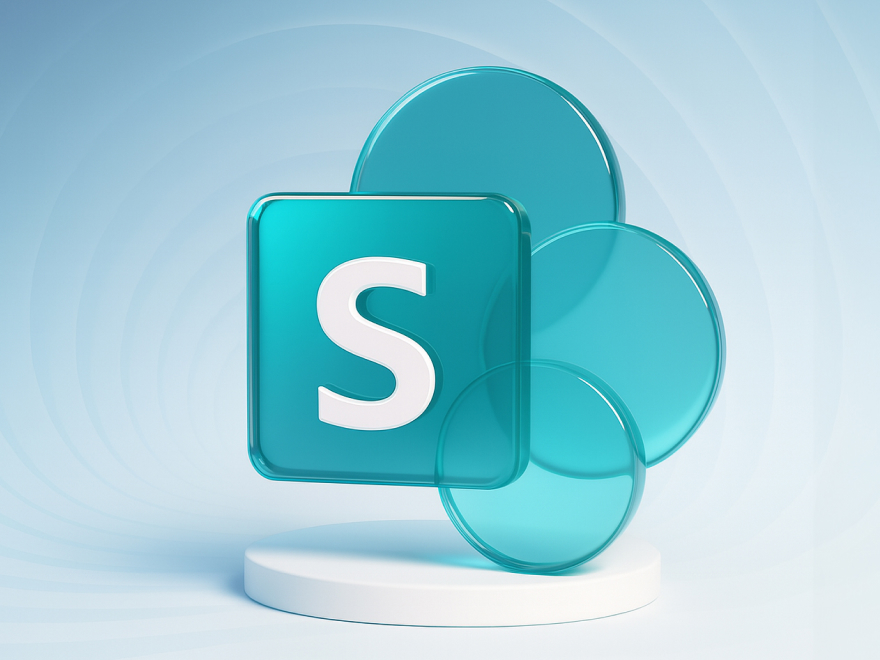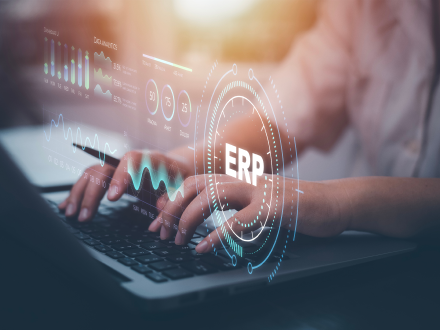Ihre Nachricht wurde gesendet.
Wir werden Ihre Anfrage bearbeiten und uns so schnell wie möglich mit Ihnen in Verbindung setzen.
Das Formular wurde erfolgreich abgeschickt.
Weitere Informationen finden Sie in Ihrem Briefkasten.

Sprache auswählen

Die Verwaltung einer großen Belegschaft ist keine leichte Aufgabe. Mit dem Wachstum eines Unternehmens wird es immer schwieriger, die Fähigkeiten der Mitarbeiter zu verfolgen und die richtigen Leute in die richtigen Rollen zu bringen. Hier kommt ein Enterprise Learning Management System (LMS) ins Spiel. Aber was genau ist ein Enterprise LMS? Es ist eine Plattform, die Unternehmen dabei hilft, Schulungsprogramme effizienter durchzuführen und wertvolle Einblicke in die Fähigkeiten und Qualifikationen der Mitarbeiter zu gewinnen.
Mit einem unternehmensweiten LMS verbessern Sie nicht nur Ihre Schulungsprozesse, sondern erhalten auch ein Tool, mit dem Sie die Fähigkeiten Ihres Teams in Echtzeit überwachen und verwalten können. Stellen Sie sich vor, Sie bereiten sich auf ein wichtiges Projekt vor und müssen ein Team mit bestimmten Fähigkeiten zusammenstellen. Anstatt sich auf veraltete Aufzeichnungen oder Vermutungen zu verlassen, bietet Ihnen ein LMS sofortigen Zugriff auf aktuelle Daten zu den Fähigkeiten und Zertifizierungen Ihrer Mitarbeiter. So können Sie ganz einfach die besten Mitarbeiter für das Projekt finden und sicherstellen, dass es in kompetenten Händen liegt.
Ein unternehmensweites LMS hilft Ihnen nicht nur dabei, die richtigen Mitarbeiter zu finden. Es hilft Ihnen auch dabei, Qualifikationslücken in Ihrem Unternehmen zu erkennen und zu beheben. Wenn beispielsweise viele Mitarbeiter mit einer bestimmten Aufgabe zu kämpfen haben, können Sie einen gezielten Schulungskurs erstellen und diesen verpflichtend machen. Dieser Ansatz steigert die individuelle Leistung und stärkt Ihre gesamte Belegschaft.
Die wachsende Bedeutung von LMS-Plattformen wird an ihrer wachsenden Marktgröße deutlich. Laut einem Bericht von Market Research Future wurde der Markt für Lernmanagementsysteme im Jahr 2023 auf 16,4 Milliarden US-Dollar geschätzt.
In den nächsten Abschnitten gehen wir näher darauf ein, wie Unternehmen von LMS-Plattformen profitieren, erkunden die verfügbaren Optionen und helfen Ihnen dabei, die perfekte Lösung für Ihre spezifischen Anforderungen zu finden, damit Sie nicht den falschen Weg einschlagen.
14,6%
ist die prognostizierte durchschnittliche jährliche Wachstumsrate (CAGR) für den globalen LMS-Markt von 2024 bis 2032
56%
der Unternehmen halten Investitionen in die Schulung ihrer Mitarbeiter für äußerst wichtig
15 bis 40 US-Dollar
ist das typische monatliche Budget pro Benutzer für LMS
Die Auswahl eines perfekt passenden Lernmanagementsystems ist von entscheidender Bedeutung. Dieser Leitfaden bietet einen klaren Prozess zur Implementierung des am besten geeigneten LMS. Befolgen Sie diese Schritte für eine reibungslose und effektive Einführung.
Stellen Sie fest, welche wesentlichen Funktionen Ihr LMS haben muss, und berücksichtigen Sie dabei die folgenden Kategorien.
Stellen Sie fest, welche wesentlichen Funktionen Ihr LMS haben muss, und berücksichtigen Sie dabei die folgenden Kategorien.
Enterprise-LMSs gehen weit über grundlegende Verwaltungsaufgaben hinaus. Sie spielen eine entscheidende Rolle bei der Disziplinierung Ihrer Belegschaft, indem sie den Kursabschluss genau überwachen, den Fortschritt verfolgen und die erworbenen Fähigkeiten der Mitarbeiter bewerten. So stellen Sie sicher, dass Ihr Team auf Kurs bleibt und kontinuierlich das für den Erfolg erforderliche Fachwissen entwickelt.
Ein unternehmensweites LMS bietet sofortigen Einblick in den Fortschritt der Mitarbeiter, den Abschluss von Kursen und die Entwicklung ihrer Fähigkeiten. Mit robusten Analysetools können Sie die Fähigkeiten Ihrer Belegschaft problemlos verfolgen und schnell die richtige Person für jede Aufgabe finden. Dies hilft Ihnen, fundierte Entscheidungen zu treffen und Ihr Team auf Erfolgskurs zu halten.

Enterprise-LMS-Plattformen vereinfachen die Kurszuweisung, indem sie Schulungen automatisch an Stellenbeschreibungen, Zertifizierungen und Compliance-Anforderungen anpassen. Diese Automatisierung rationalisiert die Planung und Erinnerungen durch die Definition obligatorischer Kurse. Mitarbeiter müssen diese Kurse absolvieren und das LMS verfolgt ihren Fortschritt und bestätigt ihr Fachwissen in Schlüsselbereichen.

Ein erweitertes Enterprise-LMS geht über interne Schulungen hinaus. Es unterstützt auch Schulungen für Partner, Kunden und Anbieter. Mit Funktionen wie Multi-Tenancy und KI-basiertem Lernen können Sie maßgeschneiderte Erfahrungen anbieten. Darüber hinaus ist es mit der e-Commerce-Integration möglich, Ihre Schulungsprogramme in neue Einnahmequellen zu verwandeln.

Indem Sie Ihr LMS mit verschiedenen Geschäftssystemen verknüpfen, können Sie Aufgaben automatisieren und unternehmensweit einheitliche Daten sicherstellen. So können Sie den Fortschritt und die Compliance Ihrer Mitarbeiter leichter verfolgen. Dadurch können Sie bessere Entscheidungen treffen und Projektziele effizienter erreichen.
HR-Systeme
CRM Systeme
ERP-Systeme
CMS-Software
Analyse- und BI-Tools
E-Commerce-Plattformen

Maksim Hodar
Delivery Director bei Innowise
Was ist der Schlüssel, um Ihre Belegschaft motiviert und auf dem Laufenden zu halten? Ein maßgeschneidertes LMS für Unternehmen könnte die Antwort sein. Im Gegensatz zu plattformbasierten Lösungen stimmt ein maßgeschneidertes LMS die Schulungen auf Ihre Unternehmensziele und -kultur ab. Hier erfahren Sie, warum ein maßgeschneidertes LMS die richtige Wahl für Ihr Unternehmen sein könnte.
Das Lernen in Unternehmen entwickelt sich schnell weiter. Neue Trends verändern die Art und Weise, wie Unternehmen an die Mitarbeiterschulung herangehen. Werfen wir einen Blick auf einige der einflussreichsten Trends im Bereich LMS für Unternehmen und sehen wir uns an, was sich in der Welt des Lernens abspielt.
Wenn Sie ein VR-Headset tragen, können Sie eine virtuelle Trainingsumgebung betreten, in der Sie Ihre Fähigkeiten in realistischen Simulationen üben können. Immersive Technologien wie Virtual Reality und Augmented Reality machen dies möglich und bieten interaktive Lernerfahrungen, die über herkömmliche Methoden hinausgehen. Diese Technologien ermöglichen es den Mitarbeitern, an szenariobasierten Schulungsmodulen teilzunehmen, in denen sie Entscheidungen treffen und aus den Ergebnissen lernen können, ohne dass dies Konsequenzen für die reale Welt hat. Ein Unternehmen könnte zum Beispiel VR nutzen, um Mitarbeiter in Sicherheitsverfahren zu schulen, indem es Notfallsituationen simuliert, damit sie schnell und effektiv reagieren können.
Kurz gesagt: Die Anschaffung eines Enterprise-LMS ist für jedes Unternehmen, das seine Belegschaft weiterbilden möchte, ein kluger Schachzug.
Egal, ob Sie die Einarbeitung beschleunigen oder Ihr Team für das nächste große Projekt fit machen möchten, ein LMS ist praktisch. Und mit spannenden Trends wie immersivem Lernen und KI-gesteuerten Inhalten wächst das Potenzial ständig.
Bei Innowise helfen wir Unternehmen, das richtige LMS zu finden, um eine qualifizierte Belegschaft aufzubauen. Möchten Sie sehen, wie es für Sie funktioniert? Lassen Sie uns chatten und loslegen!
Ein LMS wird verwendet, um Bildungsinhalte für Schulen und kleine Unternehmen zu erstellen und zu verwalten. Ein Enterprise-LMS ist für große Organisationen konzipiert und bietet Funktionen wie Skalierbarkeit, Systemintegration, erweiterte Analysen und anpassbare Rollen, um komplexe Schulungsanforderungen und Compliance-Anforderungen zu erfüllen.
Ein LMS für Unternehmen hilft großen Organisationen, indem es skalierbar ist, um viele Benutzer zu unterstützen, sich in HR-Systeme integrieren lässt und Analysen zur Verfolgung der Schulungseffektivität bereitstellt. Es bietet angepasste Lernpfade und gewährleistet die Einhaltung von Vorschriften, was die Mitarbeiterentwicklung verbessert und Abläufe rationalisiert.
Ja, ein Enterprise-LMS kann in HR-Systeme integriert werden, um Mitarbeiterdaten zu synchronisieren, das Onboarding zu optimieren und Schulungen zu personalisieren. Diese Integration reduziert Verwaltungsaufgaben, gewährleistet Datenkonsistenz und verbessert die Schulungseffizienz.
Die Verwendung eines Enterprise-LMS erfordert den Schutz von Daten durch Verschlüsselung und sichere Zugriffskontrollen, die Einhaltung von Vorschriften wie der DSGVO und die Einrichtung eines rollenbasierten Zugriffs, um die Datensichtbarkeit einzuschränken. Regelmäßige Sicherheitsüberprüfungen helfen, Verstöße zu verhindern und die Systemsicherheit zu gewährleisten.













Ihre Nachricht wurde gesendet.
Wir werden Ihre Anfrage bearbeiten und uns so schnell wie möglich mit Ihnen in Verbindung setzen.

Mit der Anmeldung erklären Sie sich mit unseren Datenschutzrichtlinie